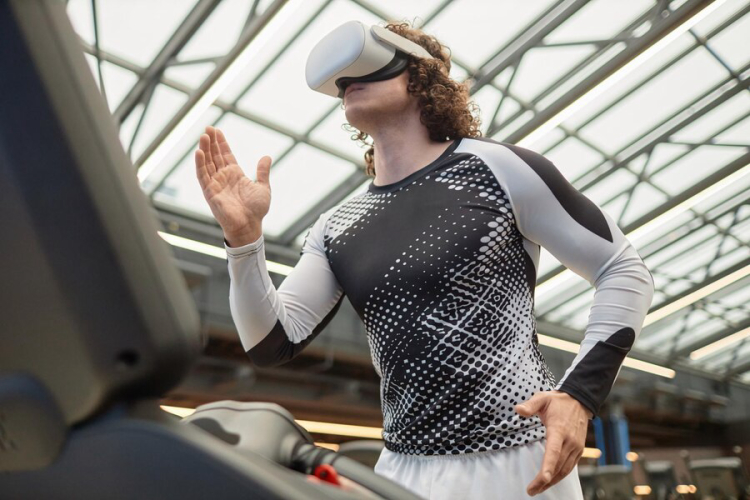
Analytics and forecasts: increase your chances of success
Winning in sports is not just about talent or hard work—it’s about strategy. Smart data use gives teams, coaches, and athletes a competitive boost. They win more often. Predicting outcomes, maximizing performance, and refining strategies for success—that's the scientific approach they take. It's a winning combination.
Data analysis is changing sports big time. Winning depends a lot on how good the predictions are, right? Analytics is revolutionary. See the proof in the numbers, the strategies, and the real-world results.
The Power of Sports Analytics
Sports analytics is the systematic analysis of performance data to enhance decision-making. Think of all the ways this helps: better scouting, smarter game plans, fewer injuries, and a more engaged fanbase. It's a powerful tool.
Top teams in the NBA, NFL, and Premier League use sophisticated data analysis—looking at things like player performance, how the game unfolds, and what adjustments are needed.
- Example: The Warriors changed basketball with their focus on three-pointers. Data showed them the way. Their success wasn’t accidental—it was data-driven.
- Stat: According to a study by the MIT Sloan Sports Analytics Conference, teams that invest in advanced analytics improve win percentages by 5-10% over five years.
Predictive Modeling: Anticipating the Future
What if you could predict an opponent’s next move? Or forecast a player’s performance based on past data? That’s the power of predictive modeling.
By analyzing past performances, injuries, weather conditions, and even psychological factors, teams can make data-backed predictions about upcoming games. All that is needed is a sufficient set of fair data and AI to analyze it. Mathematical formulas can be calculated using math sovler for iOS, and more global predictions are easier to make with AI. This is particularly valuable in sports betting, player transfers, and game-day tactics.
- Example: Liverpool FC uses predictive analytics to determine which players fit their system best, leading to efficient and successful transfers.
- Stat: A Harvard study found that teams using AI-driven predictive models in scouting improve recruitment accuracy by 20%.
Success Strategies: How to Use Analytics to Win
1. Game Strategy Optimization
Understanding an opponent’s weaknesses can change the course of a match. Teams use real-time analytics to adjust their game plans mid-match.
- Case Study: Tennis star Novak Djokovic frequently reviews opponent tendencies using data-driven analysis. His ability to anticipate shots gives him a strategic advantage.
2. Injury Prevention and Player Health
Wearable technology and biometric data help track an athlete’s workload. By analyzing movement patterns and fatigue levels, teams reduce injury risks.
- Stat: Studies show that clubs using injury prediction models reduce player absences by 30% per season.
3. Talent Scouting and Recruitment
Gone are the days of scouting based on intuition alone. Now, clubs analyze thousands of data points—speed, reaction time, endurance—to find undervalued talent.
- Example: MLB’s "Moneyball" approach transformed player evaluation, proving that statistics often outperform traditional scouting methods.

Fan Engagement: The Hidden Power of Analytics
Sports analytics isn't just for teams and athletes—it’s reshaping how fans experience the game. With real-time statistics, AI-powered predictions, and interactive data visualization, audiences engage like never before.
Fantasy sports platforms use predictive modeling to help users draft winning teams. Broadcasters integrate advanced metrics into live coverage, offering deeper insights into player performance. Even stadiums leverage data to enhance the fan experience, optimizing seating, concessions, and crowd management.
- Stat: Research shows that fan engagement increases by 40% when interactive analytics are incorporated into broadcasts.
The Future of Sports Analytics
As AI and machine learning evolve, sports analytics will only become more precise. Virtual simulations, biomechanical tracking, and even cognitive performance assessments will redefine how athletes train and compete.
- Trend: Some teams already use AI-powered cameras to track in-game player movements, generating millions of data points per match.
- Prediction: Within the next decade, 95% of professional teams will integrate AI-driven analytics into daily operations.
Final Thoughts
Success in sports is no longer just about raw skill—it’s about using data to outthink the competition. Whether through predictive modeling, injury prevention, or tactical adjustments, analytics maximizes the chances of victory.
Athletes and teams that embrace this approach aren’t just playing the game. They’re mastering it.
Free gems, plus daily, weekly, & monthly boosts!
3 FREE Cases & 5% Deposit Bonus
5% deposit bonus up to 100 gems
Free daily case + 5% deposit bonus
EXTRA 10% DEPOSIT BONUS + free 2 spins
3 Free Cases + 100% up to 100 Coins on First Deposit

Sign up now and get 2 FREE CASES + 5$ Bonus
Get 5% bonus and 5 FREE Cases Using Code: EGAMERSW
5 Free Cases, Daily FREE & Welcome Bonuses up to 35%
5 FREE Cases & 5% Deposit Bonus with code: EGAMERSW

EGAMERSW - get 11% Deposit Bonus + Bonus Wheel free spin

Code "EGW" for 8% bonus. Daily Free Cases. Hourly in-site giveaways

a free Gift Case
Up to 4% Rakeback Bonus

3 free cases and a 5% bonus added to all cash deposits.

Get 5% bonus on your deposit

10% TOP UP BONUS + $0.50

+100% bonus on first deposit.

+5% to deposit
2% Deposit Bonus

Free Case and Deposit Bonus
Comments